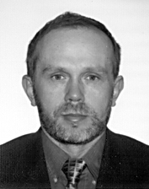Policy Process and Social Sciences
People in power have always liked to exchange ideas with sociologists. Already in ancient Greece, philosophers debated on the subject of the ideal organisation of society and policy. In today’s developed industrial countries, it is hard to imagine the policy-making process without the active involvement of social scientists, research institutes, universities and private companies.
According to conventional wisdom, social science is a system of mirrors that sets development targets for society and particularly in political decisions. In the case of countries in transition, social reflections are necessary to ensure the independence of political decisions, otherwise they would be importing ideas, opinions and values at random and create a dependency on external influence. Since Estonia is a small country with limited resources, it is important to ensure that as the state and the society matures, simple and random decisions are replaced by informed choices.
The recent boom in drawing up development plans, scenarios and visions proves that we are moving towards such a model of society. The organisational and human resources of social sciences in Estonia are relatively scarce. The Estonian Science Foundation, which lists under social sciences: economics, law, sociology, demographics, pedagogical science, psychology, political science, human-, social and economic geography, social anthropology, ethnology and semiotics, claims that social sciences in Estonia employ between 250 and 300 people.
In order for sociologists and decision-makers to assist each other, they must first understand that they need each other. Communication between partners is also the underlying principle of the European Research Area and is favoured by the Estonian national policy on research and development.
The role of social studies in developing political decision-making could be roughly divided into five sub-roles: situation mapping; comparable data; policy or programme development; providing feedback; future scenarios. Unlike natural sciences, the social sciences in Estonia were much more isolated in the Soviet era. Therefore, adequate funding schemes for social studies are only starting to emerge and the co-operation between social scientists and decision-makers is being revived. In a transitional society, researchers are constantly battling with the so-called irrelevance of topics: what is important to local needs may not interest the international scientific community and vice versa. In order to meet the expectations of decision-makers, sociologists need to put in extra hours to translate research into the language of political problems and vice versa.
Assuming that communication between social scientists and decision-makers is sufficiently effective and that the result can be implemented, researchers will still be fulfilling an advisory role, offering situation mapping and showing possible development scenarios including an analysis of involved risks and resources.
In developing government decisions, social sciences fulfil all five roles in today’s Estonia. At the same time, it is clear that resources are mainly in situation mapping and comparison, while the development of feedback, policies and scenarios that require more effort is underexploited.
The main problem is that Estonian state has no consistent interest in the subject. The majority of social studies conducted in Estonia are based on the ideas and projects of the researchers themselves. Policy-making institutions should be more active in using the services of researchers, especially in issues of national importance that cannot only be resolved by one group of researchers. Possible research areas are, for instance, Estonian development models for the 21st century, Estonia’s development and competitive ability in the context of accession to the European Union, administrative reform implementation, development of the legal framework in Estonia, etc.


